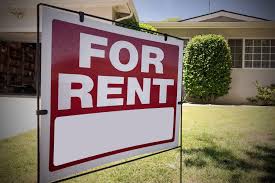Understanding Your Rights When a Landlord Breaks a 60-Day Move-Out Promise in Pennsylvania
Renting a home comes with its set of challenges, and one significant challenge renters might face is when a landlord breaks a promised move-out agreement. In Pennsylvania, tenants have legal protections, especially when it concerns eviction and move-out notices. If your landlord breaks a 60-day move-out promise, you need to understand that you do not have to give in or leave your home prematurely. This article aims to provide a comprehensive overview of tenant rights in Pennsylvania, focusing on eviction laws, how to handle broken agreements, and the available legal recourses for tenants.
Legal Framework Governing Evictions in Pennsylvania
Under Pennsylvania law, eviction is a legal process that requires a court order. A landlord cannot force you to leave your rental property without obtaining an official eviction notice followed by a legal proceeding in court. This means that even if your landlord promises or demands that you move out within 60 days or any other set time, they cannot forcibly evict you without proper legal steps.
The Pennsylvania Landlord and Tenant Act and the Pennsylvania Rules of Civil Procedure provide the framework for eviction proceedings. These laws protect tenants from illegal or self-help evictions, which are attempts by landlords to remove tenants without going through the court system.
What to Do If Your Landlord Breaks a 60-Day Move-Out Promise
- Keep detailed records of all communications with your landlord, including texts, emails, and any written agreements that document the promise you were given to move out in 60 days.
- Respond in writing to your landlord, stating clearly that you will only move out under the originally agreed terms and that any attempt to force you out earlier is unlawful.
- Avoid agreeing to any verbal demands or pressures to leave early without proper legal documentation.
- Contact legal aid organizations or tenant’s rights groups who can provide legal assistance and representation if necessary.
Understanding Self-Help Eviction and Why It Is Illegal
Self-help eviction refers to any action taken by a landlord to remove a tenant without a court order. This includes actions such as changing locks, shutting off utilities, removing tenant belongings, or physically forcing a tenant to leave. Pennsylvania law strictly prohibits such measures because they bypass the due process that courts provide to both landlords and tenants.
If you experience any form of self-help eviction, document the incident immediately, gather evidence, and seek legal aid. Pursuing legal action against illegal evictions can help restore your rights and potentially lead to damages awarded against the landlord.
The Importance of Documenting Agreements and Communications
One of the critical steps in protecting yourself when dealing with landlord tenant disputes is maintaining meticulous records. Keeping copies of all texts, emails, letters, and any documents signed concerning your move-out timeline can serve as powerful evidence if disputes escalate to court proceedings.
When responding to any communication from your landlord regarding the move-out, always provide written replies summarizing your understanding of the agreement. This creates a paper trail that clarifies the terms and makes it harder for landlords to claim otherwise.
When to Seek Legal Assistance
Legal aid organizations and tenants’ rights advocacy groups in Pennsylvania stand ready to assist renters facing eviction or landlord disputes. If your landlord is breaking a promised move-out term or attempting eviction without following legal protocols, contacting these groups early can provide you with:
- Free or low-cost legal advice tailored to your specific situation.
- Representation in court to defend against unlawful eviction.
- Guidance on gathering evidence to support your case.
- Support navigating complex housing laws and tenant protections in Pennsylvania.
Early legal intervention often increases the chances of a favorable outcome for tenants. It’s important not to ignore notices or threats from landlords but to respond appropriately and promptly.
Common Myths About Eviction and Move-Out Notices
Several misconceptions circulate among tenants regarding eviction and move-out rights. Understanding these myths and the truth behind them can empower tenants to better protect themselves.
- Myth: "A landlord can force me out at any time if they ask." Truth: In Pennsylvania, eviction requires a legal process with court involvement.
- Myth: "If the landlord changes the locks, I must leave immediately." Truth: Changing locks without a court order is illegal and considered self-help eviction.
- Myth: "Verbal agreements about move-out dates are binding for eviction." Truth: Written agreements and court orders hold legal weight; verbal promises are difficult to enforce.
Steps to Take if You Face an Illegal Eviction Attempt
If you believe your landlord is trying to evict you illegally or force you to move out earlier than agreed, consider the following steps:
- Document everything, including dates, times, and descriptions of landlord actions.
- Notify your landlord in writing that you will not vacate until a proper court order is presented.
- Contact local tenant rights organizations and legal aid for immediate assistance.
- If locks are changed or utilities are shut off unlawfully, report the incidents to local housing authorities or the police.
- Prepare for court by organizing all documents and evidence supporting your case.
Understanding the Timeline and Process of Legal Eviction
Legal eviction in Pennsylvania follows a structured timeline that landlords must observe. This process includes serving a proper notice, such as a Notice to Quit, and filing a complaint in the Magisterial District Court if the tenant does not comply. Tenants have the right to respond and attend a hearing.
The court then decides if eviction is justified based on presented evidence. If the court grants the eviction, the sheriff or constable will execute the eviction order. Tenants cannot be removed without this legal process.
How to Protect Yourself When Entering a Lease Agreement
Prevention is key when it comes to avoiding eviction disputes. As a tenant, it is essential to protect your rights from the outset by:
- Reading and understanding all lease terms before signing.
- Ensuring all agreements, including move-out timelines, are documented in writing.
- Negotiating clear terms for notice periods and move-out expectations.
- Keeping copies of the signed lease and any amendments.
- Staying proactive in communication with your landlord regarding any issues or changes.
Resources for Pennsylvania Tenants
Pennsylvania tenants have several resources available for legal aid and support, including:
- Pennsylvania Legal Aid Network (www.palegalaid.net)
- Local tenant advocacy groups
- Housing counseling agencies
- Municipal housing authorities
Contacting these organizations early can provide you with guidance tailored to your unique situation and help you understand your rights under current Pennsylvania laws.
Final Thoughts on Defending Your Rights as a Tenant
Landlord-tenant relationships can sometimes become strained, especially when it involves eviction or move-out disputes. Understanding your legal protections in Pennsylvania empowers you to assert your rights and respond appropriately if your landlord breaks a move-out promise or attempts illegal eviction.
Remember to keep all communications in writing, document every interaction, and seek legal assistance promptly when needed. You do not have to move out early unless the proper court procedures have been followed, and stand firm on the terms you agreed upon.
In Pennsylvania, tenants are legally protected against illegal eviction attempts, including when a landlord breaks a 60-day move-out promise. Eviction requires a court order, and no one can force a tenant to leave prematurely. Maintaining clear records and seeking legal aid are crucial steps in defending your rights. If you face such challenges, reach out to legal professionals and tenant advocacy groups to ensure you are fully informed and protected.
Legal Marketplaces CONSULTANT — a company specializing in comprehensive legal services for businesses and individuals. Our team includes experienced lawyers and legal consultants dedicated to protecting your tenant rights and providing effective legal solutions.
Providing guidance on landlord-tenant law and helping tenants understand their rights and responsibilities under Pennsylvania law.
Offering legal representation and support during eviction hearings to ensure fair treatment and protection under the law.































